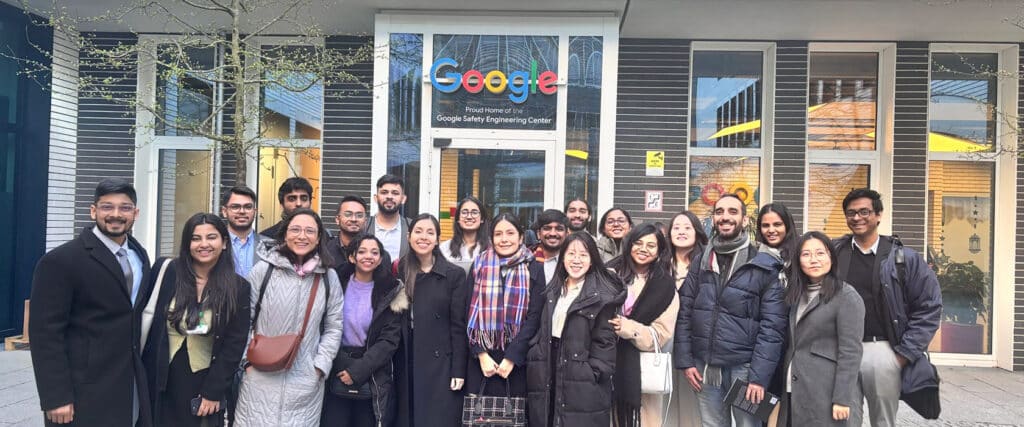Why Norway Is Synonymous With Seafood
Norway’s deep fjords and rugged coastline are more than a dramatic backdrop—they are the lifeblood of one of the world’s most vital industries: seafood. The country is the fourth-largest seafood exporter globally, with aquaculture and fisheries representing a quarter of its mainland exports.
Steffen Juranek, Academic Director of NHH’s EMBA with a specialization in Seafood Management, explains, “If you think of engineering, you often think of Germany. If you think of watches, it’s Switzerland… If it’s seafood, it’s Norway, particularly the western part of Norway.” (01:21)
This vital industry has evolved from traditional fishing to cutting-edge aquaculture, marked by high-tech innovations in production and logistics. Director Juranek says, “Aquaculture is really a high-tech industry, but also the fisheries have become really capital-intensive and technology-intensive.” (01:42)
As the seafood industry constantly evolves, the need for seafood management education to keep up with industry trends and sustainability goals is increasingly important.
NHH: A Nordic Beacon of Education
Situated in Bergen, the gateway to Norway’s seafood heartland, the Norwegian School of Economics (NHH) is a hub for academic rigor and Norway’s oldest business school. Its triple accreditation from EQUIS, AACSB, and AMBA underscores its standing as one of Europe’s top business schools. With a legacy of producing influential leaders in Norwegian businesses, NHH is uniquely positioned to offer a transformative learning experience.
Recognized for its academic contribution, NHH has consistently appeared in the Financial Times European Business School Ranking since 2005. The school ranked #53 in the European Business School Rankings 2024. The school is also the only Norwegian member of CEMS, a global alliance of top-tier business schools, multinational companies, and NGOs dedicated to advancing global business education.
Besides following the high standards set for all top business schools, what distinguishes NHH is the school’s commitment to personal mentorship. Director Juranek says, “I believe what we offer additionally is very close personal guidance in the study journey. We are cohort-based, and we have an academic director who follows the students through their study journey.” (07:56)
This personalized approach ensures students gain theoretical knowledge and build meaningful connections with peers and industry leaders.
An EMBA Specialization for Every Ambition
At the core of NHH’s executive offerings lies its Executive MBA program, designed to help executives elevate their careers through strategic insight and specialized expertise. The EMBA is a part-time, two-year program. It combines insightful campus sessions with personalized support from the academic director, peer learning from a network of professionals from various industries, and international study trips in Europe and Asia/USA. These elements ensure candidates gain a global perspective, personalized support, and expert, up-to-date knowledge.
In the core courses, students cover the essentials of economics, strategy, and management topics. They also learn about globalization, sustainability, and technological developments. A unique feature of this EMBA is its three distinct specializations, each tailored to meet the demands of today’s rapidly evolving business landscape.
Students can choose between Management Control (which focuses on finance and economic management), Strategic Management (for those interested in gaining a competitive business edge), and Seafood Management (which focuses on innovation and sustainability in the seafood industry).
The Seafood Management specialization is an innovation-driven program that connects Norway’s rich maritime heritage with global industry trends and conscientious leadership in sustainable practices.
A Deep Dive Into the Seafood Management Specialization
This Executive MBA is a cohesive blend of strategic management principles and industry-specific insights. With a strong foundation in sustainability, logistics, and innovation, the program addresses the global seafood industry’s complex challenges.
Industry visits, case studies, and guest lectures by senior leaders bring real-world challenges into the classroom. For example, discussions might center around a Norwegian salmon producer’s market entry strategy in Japan, blending theoretical frameworks with practical applications.
The EMBA fosters collaboration among professionals from diverse backgrounds. Students can expand their professional network and engage in peer learning with one another. This diversity mirrors the international nature of the seafood industry itself. Norway’s seafood exports continue to be in demand worldwide, including demand from countries in the EU, China, the USA, and many other countries.
The program comprises part-time study over two years, equal to 90 credits. Its part-time composition offers balance and flexibility to busy working professionals. It should be noted that applicants must have three years of work experience before applying.
The Seafood Management specialization integrates on-campus learning with digital elements, such as digital seminars and hybrid lectures. The program is structured around four modules and an MBA thesis. While the on-campus weeks are mainly in Bergen, students also have the opportunity to travel abroad to partnering institutions.
Anchoring Seafood in Global Sustainability
Sustainability is not just a buzzword at NHH; it’s integral to the Seafood Management specialization. Director Juranek states, “Most of the production takes place in nature [so] the industry depends on its well-being. Small shifts in the environment can have major adverse effects. Industry players do not only have to address those issues but also prepare for consequences.” (06:50)
The curriculum emphasizes sustainability at all levels, from local environmental concerns to global issues like climate change. With climate change and resource depletion becoming increasingly alarming, seafood’s role as a sustainable food source has become increasingly critical. Norway’s leadership in this domain ensures that NHH’s program remains at the top of its league, equipping candidates with the tools and knowledge to drive global sustainability efforts.
External reports echo this palpable need to stay on top of sustainability innovation and keep pushing its development forward. According to the FAO’s State of World Fisheries and Aquaculture 2022, global seafood demand is expected to rise significantly, with sustainable aquaculture poised to meet this need. Likewise, a UNEP study highlights the importance of seafood in achieving global food security goals.
These insights reaffirm the relevance of NHH’s specialized focus on this dynamic sector.
Steering Toward Sustainable Solutions
Graduates of the NHH EMBA Seafood Management track find themselves well-positioned for leadership roles in one of the world’s most vital industries. The opportunities are vast, whether steering the strategies of global seafood conglomerates, spearheading sustainability initiatives, or leading technological innovation.
Director Juranek explains, “When you look at the top management of Norwegian companies, you will often find many alumni from NHH there.” (08:22)
Today, NHH alumni contribute meaningfully to their organizations while reshaping the industry. The seafood sector’s global significance, underscored by its role in sustainable food production, ensures that graduates make meaningful, far-reaching impacts.
Are you curious to learn more about NHH? Visit their profile page for further information or discover more about studying in Norway.





